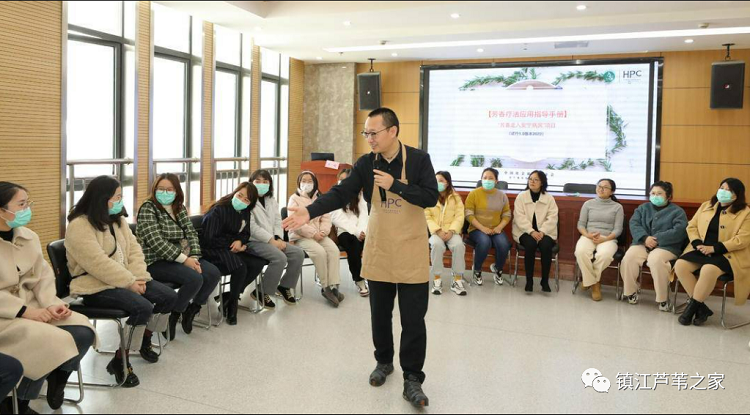Volunteers of a civil charity organization in Jiangsu Province attended an aromatherapy training session, including palliative care and hospice care.
On March 3, the launching ceremony of the project of "Aromatherapy Into Hospice Care Ward" and the ward’s construction training were held by the Hospice & Palliative Care Special Fund (HPC) of China Social Welfare Foundation in Zhenjiang Third Hospital Affiliated to Jiangsu University, marking the first time that the project settled in Zhenjiang.
Together with the staff in the hospice care specialist team of the hospital, the members of Reed’s Home Volunteer Service Center in Zhejiang, Jiangsu, received the "User Manual of Essential Oil in Aromatherapy and Hospice Care" from Wang Kai, secretary-general of HPC. They also listened to the lesson covering professional aromatherapy knowledge, clinical application, and practical training, Reed's Home reported.
Wang said, established in 2020, the foundation specializes in the promotion of social practice and clinical research of hospice care in China.
The project is to provide professional aromatherapy consultation, aroma care volunteer services, professional courses, and team supervision for patients, their families, and medical workers in the "aroma rehabilitation garden". They will train more professionals in hospice and palliative care, aiming to improve the quality of life of patients and their families, help their families overcome crises, and let patients achieve a "good death" in comfort, peace, and dignity.
It is said, hospice and palliative care is designed to reduce pain and physical and psychological distress for patients. The "Aroma Care Ward" consists of "rehabilitation garden", aroma care, training, and expansion. On the basis of the "hospice care ward", mint, rosemary, lavender, anthurium, and other flowers are introduced to form a "rehabilitation garden". The fragrance of these flowers has effects of analgesia, resuscitation, and tranquility.
Then, after massaging and manipulation with essential oil, and psychological communication conducted by professional medical staff, patients and their families can face illness and death with a positive outlook instead of anxiety and fear.
During the training, the trainees practiced aromatherapy by skin-to-skin contact, not only to help patients, but also to heal themselves in physical, mental, and psychological pressure, recognizing the dignity and value of life.
- Translated by Abigail Wu












